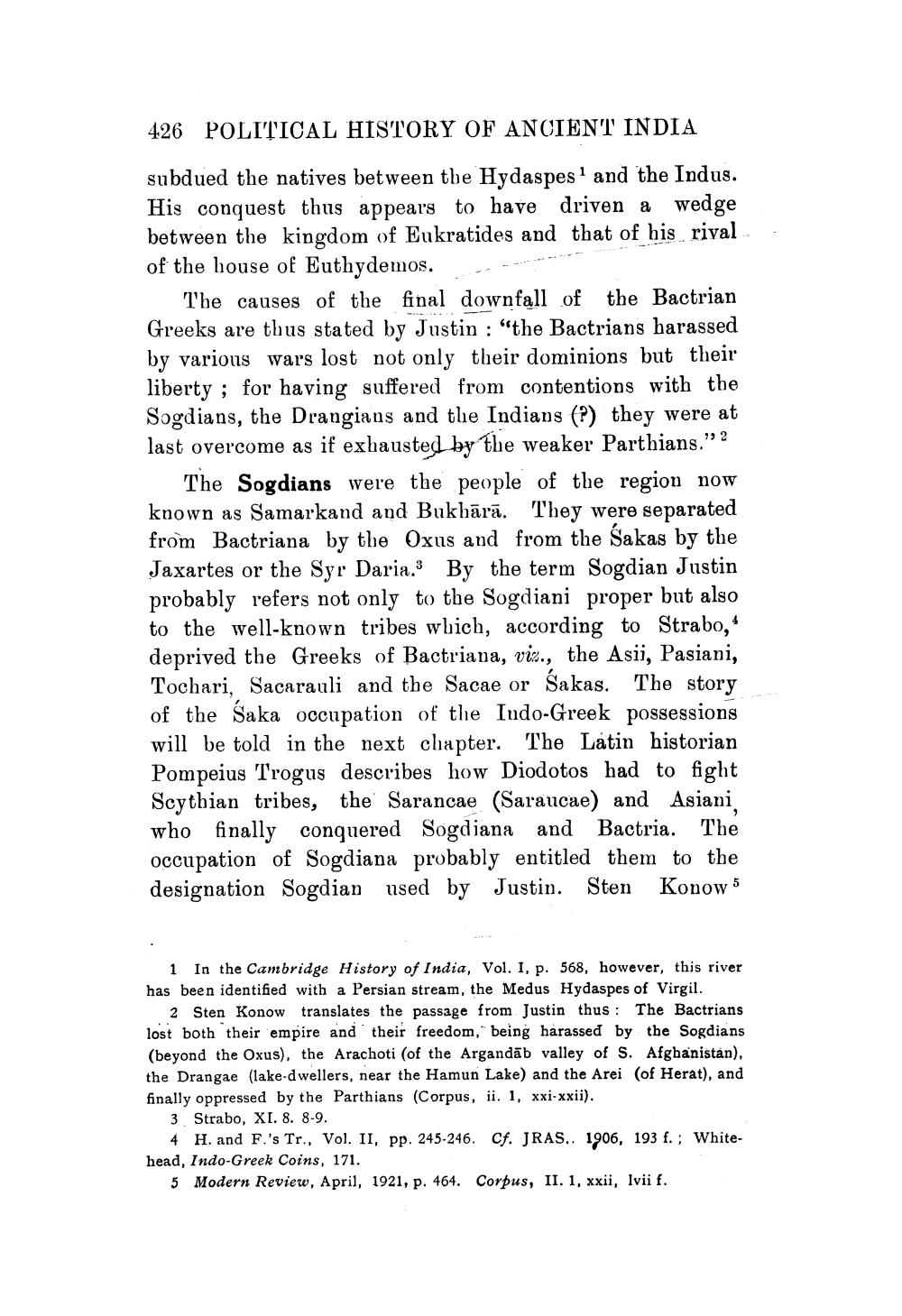________________
426 POLITICAL HISTORY OF ANCIENT INDIA
subdued the natives between the Hydaspes and the Indus. His conquest thus appears to have driven a wedge between the kingdom of Eukratides and that of his rival of the house of Euthydemos. ---
The causes of the final downfall of the Bactrian Greeks are thus stated by Justin : "the Bactrians barassed by various wars lost not only their dominions but their liberty ; for having suffered from contentions with the Sogdians, the Drangians and the Indians (?) they were at last overcome as if exhausted by the weaker Parthians." 2
The Sogdians were the people of the region now known as Samarkand and Bukhārā. They were separated from Bactriana by the Oxus and from the Sakas by the Jaxartes or the Syr Daria. By the term Sogdian Justin probably refers not only to the Sogdiani proper but also to the well-known tribes which, according to Strabo, deprived the Greeks of Bactriana, viz., the Asii, Pasiani, Tochari, Sacarauli and the Sacae or Śakas. The story of the Saka occupation of the Indo-Greek possessions will be told in the next chapter. The Latin historian Pompeius Trogus describes how Diodotos had to fight Scythian tribes, the Sarancae (Saraucae) and Asiani who finally conquered Sogdiana and Bactria. The occupation of Sogdiana probably entitled them to the designation Sogdian used by Justin. Sten Konow 5
1 In the Cambridge History of India, Vol. I, p. 568, however, this river has been identified with a Persian stream, the Medus Hydaspes of Virgil.
2 Sten Konow translates the passage from Justin thus : The Bactrians lost both their empire and their freedom," being harassed by the Sogdians (beyond the Oxus), the Arachoti (of the Argandab valley of S. Afghanistan), the Drangae (lake-dwellers, near the Hamun Lake) and the Arei (of Herat), and finally oppressed by the Parthians (Corpus, ii. 1, xxi-xxii).
3 Strabo, XI. 8. 8-9.
4 H. and F.'s Tr., Vol. II, pp. 245-246. Cf. JRAS.. 1906, 193 f.; Whitehead, Indo-Greek Coins, 171.
5 Modern Review, April, 1921, p. 464. Corpus, II. 1, xxii, lviif.




